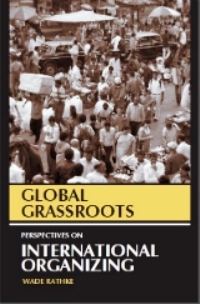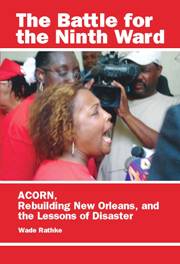BOOK REVIEW: A Priest Took a Stand
Written by Toby Terrar
Fr. Jean Boulier’s A Priest Took a Stand against Cold War Anti-Communism (1948): Political Theology for Present-Day NATO Criticism
This book by Father Jean Boulier (1894-1980) was originally published in French in 1949 under the title Un Prêtre prend position (A Priest Takes a Stand). A subtitle was added to the translated version for the benefit of those who do not know of Fr. Boulier and his background. The book summarized the political theology of the Christians who were taking the communist side against the North American Treaty Organization (NATO). The book joins another of Fr. Boulier’s books, I was a Red Priest, that has recently been published by Red Star. Several other of his works are planned, including Jan Hus, Vatican Council II, The Worker Priests and The New Mass. The Washington, DC-based Fr. Jean Boulier Society is helping to fund the translations.
The reason for the current republication of the book after 75 years – and in English for the first time – is that the publisher, Red Star, believes that the class forces that were behind the cold-war anti-communism of Fr. Boulier’s day continue to dominant the West. Marxists study and oppose these forces, but the stand summarized by Fr. Boulier, based on Christian authority, is also seen as compelling and supportive of the communists. Further, as observed by Red Star, Westerners are open to the anti-NATO Christian argument, which Fr. Boulier’s book set forth in its full class character. Pope Francis, for example, in May 2022 characterized NATO as “barking at Russia's door.”
Fr. Boulier, a Parisian, was known as the “Red Priest,” because of his collaboration with the Communist Party of France (PCF). He had been a partisan during World War II and afterwards was a professor of Christian Legal Principles at the Catholic University of Paris. He was also a leader in the international peace movement. In this capacity he spoke at and wrote about their meetings and congresses in France, Italy, and Eastern Europe.
The book’s original publication was tied both to the formation of NATO and to Fr. Boulier’s personal situation. He had just been fired from his professorship because he was defending the anti-NATO Christians. (TS, p. 86) The book rebutted the attacks being made against him and the peace movement. The source of the written material he published as his rebuttal came mainly from a number of earlier articles which he had published in 1946 and 1948. He incorporated them as chapters in the chronological order they were written. The articles reported on the religious aspects of the peace movement events in which he had participated.
In the book’s introduction, Fr. Boulier set forth what he saw as the unifying religious themes that ran throughout the peace movement and upon which he had taken a stand. They were, first, a stand against anti-communism. Second, a stand against America’s atomic policy because it violated the Christian principles of war and peace. Third, a stand on the side of social Christianity. (TS, p. 7)
There were three main peace event reports that became chapters in the book. The first event, from April 1946 was a five-week visit at the request of the Polish government of a delegation of French intellectuals including Fr. Boulier, to multiple Polish cities. In the report Fr. Boulier noted the collaboration he observed of the communists and social democrats in the re-building of their country. He concluded from such observations that the iron curtain was a myth, imposed by the capitalist West to hide the socialist success. He also discussed the political role in the People’s Republic of the Soviets, US, Britain and France.
Others on the Polish tour with whom Fr. Boulier worked included the personalist philosopher, Emmanuel Mounier, to whose journal, Esprit, Fr. Boulier was a contributing author. In America the Catholic Worker movement, which was also part of the peace movement, was influenced by Mounier’s thinking. After Fr. Boulier was attacked in Europe, Dorothy Day came to his defense and that of his American counterparts in her Catholic Worker newspaper. Mounier for his part published reports from Catholic Worker members in his journal. In 1967, Fr. Boulier published further recollections of Mounier and their Polish visit (“En Pologne il y a vingt ans voyage avec E. Mounier,” Europe, Feb.-Mar., 1967, pp. 320-343).
Besides the report on the Polish tour, a second article used by Fr. Boulier in his book dealt with a September 1946 visit to Rome at the request of the newspaper Le Monde Illustré. In addition to the Communist Party of Italy (CPI), the activity of the Vatican, the Social Democracy and the US role was discussed. Fr. Boulier found the presence of the US military in Rome (and in Paris), to be heavier than that of the Red Army in Warsaw. In Fr. Boulier’s view, anti-communism had been behind the rise of Nazism and it continued to dominate the West.
A third report included in Fr. Boulier’s book was about the World Congress of Intellectuals for Peace at Wroclaw, Poland, which was held on August 25-28, 1948. There were 391 delegates from 46 countries. These included 32 from the US. Fr. Boulier delivered one of the speeches which gave a Christian perspective on the peace movement. His speech is included in the book. The Christian perspective that he discussed in his speech maintained that to legitimize what would become NATO’s war mongering, the bourgeois state turned on their head Thomas Aquinas, the jurists Francisco de Vitoria, and Francisco Suarez, the scriptures and the papal encyclicals. From his view, the main international peace issue that faced believers was the American-led cold war being waged to take back the advances made by the working class as a result of capitalism’s World War II debacle. (TS, pp. 85, 93-94).
In the cold war battle Fr. Boulier argued that social Christianity could be good citizens of the socialist order, but they could not accept the bourgeois state and its fundamental law, the one to which, as he put it, all others finally gave in: make money, get rich. (TS, p. 77). It followed as Fr. Boulier taught, that in being good citizens, the social Christians were not escapees; but rather they took their place alongside their brothers and sisters in building socialism. The vocation, which distinguished them, was to announce the good news: that the kingdom of God was here and to support the social engineers who had devised a better plan for the production and distribution of wealth. He summarized this political theology: “Christians obey the laws, not only out of fear, but also out of conscience, because the authority that promulgates the law signifies to them the very will of their God.” (TS, pp. 76-77).
Toby Terrar is a lawyer as well as a professor who has taught at numerous universities.










